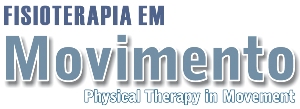Abstract
Introduction:
Low intensity laser therapy has proven effective in treating different tissues, reducing inflammation, preventing the formation of fibrous tissue, and promoting muscle regeneration.
Objective:
To evaluate the effect of low intensity laser therapy, seven days after the injury, and verify whether the radiated energy chosen influences the formation of fibrous tissue.
Methods:
Thirty Wistar rats, adult male, average body weight 210-340 g were used. The animals were randomized into three groups: control group, untreated injured group (L), and injured and treated group (LT). After anesthetizing the animals, muscle injury was induced by freezing (cryoinjury) in the central region of the tibialis anterior muscle belly (TA) on the left hind limb, through an iron rod previously immersed in liquid nitrogen. A Gallium Arsenide laser, wavelength 904 nm was used. The applications were initiated 24 hours after injury, daily, for five days, at two points in the lesion area. After 7 days, the animals were euthanized; the TA muscle of the left hind limb was removed and frozen in liquid nitrogen and the obtained histological sections were subjected to Sirius Red staining.
Results:
Histological analysis showed no significant difference in relation to the area of fibrosis in the LT and L groups.
Conclusion:
The results suggest that the energy density of 69 J/cm² and final energy (4.8 joules) did not promote alterations in the area of collagen in the skeletal muscle extracellular matrix.
Keywords:
Laser Therapy; Striated Muscle; Fibrosis

